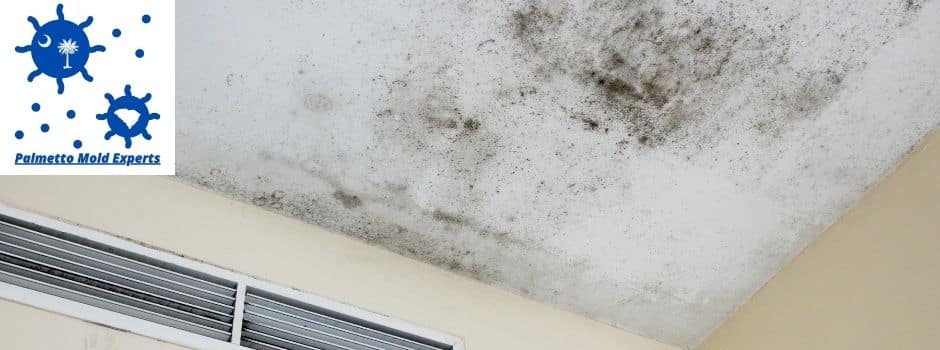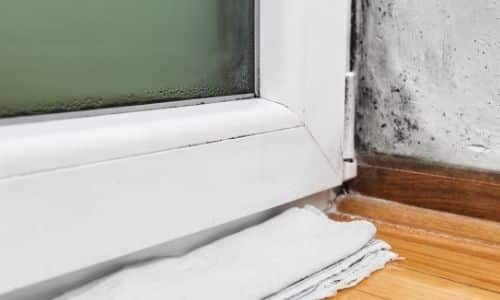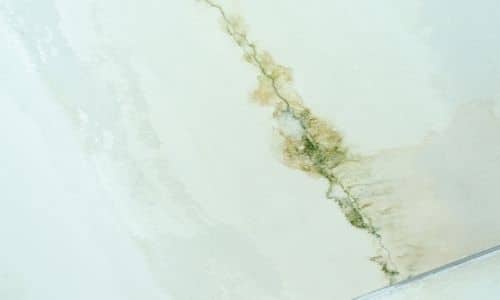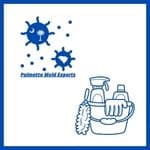
Can You Live in a House With Mold?
In South Carolina if you have found signs of mold growth in your home, you might want to start a thorough inspection to determine whether it is indeed a danger to your health. Mold is a natural substance that thrives in moist environments. Not only does mold grow in your SC home, but it can also damage large sections of your property. Proper air circulation is the best way to prevent this problem from arising. If you can't keep a door open while inspecting your home for signs of mold, you should consider getting an air conditioning unit installed.
Mold is a natural substance
While we're not necessarily aware of it, mold is a natural substance. It grows naturally in our environment on moist and damp surfaces and feeds on organic matter. Molds will destroy things to survive, including the wood in our South Carolina homes. They spread by releasing spores, which are microscopic reproductive cells that can range in size from 2 to 10 um. Although they're usually harmless, some molds can cause allergies, asthma, and other illnesses.
There are many different kinds of mold. The most common ones are called stachybotrys and ulocladium. Stachybotrys mold grows on wood and other porous surfaces. This kind can cause respiratory problems, fever, and even a burning sensation in the trachea. When ingested, stachybotrys mold can cause severe health problems. It can even damage the bone marrow and the nervous system.
Some types of mold are useful for food preservation. The fungus can grow on the surface of certain foods, such as cheese. Other types, like Brie and Camembert, are produced by adding spores of Penicillium roqueforti. Some types of cheese, however, have both surface and internal molds. Mold is a natural substance, and the removal of these spores is critical to the preservation of fresh food.
Exposure to mold can cause allergies. Although some people are sensitive to mold, others develop a mold allergy over time. If the mold is in a high-moisture environment, people are more likely to experience respiratory symptoms. These symptoms may include wheezing and stuffy nose. In more severe cases, exposure to mold may result in joint pain, itchiness, or fever. These symptoms are more severe in those who already suffer from certain illnesses, such as lung cancer.
If you notice that mold has spread throughout your home in South Carolina, you must remove the mold right away. Although this may seem like a cost-effective option, the risk of contamination is far greater. If you try to remove mold without professional help, you could end up spreading the spores all over the place, contaminating the rest of your house. Also, by dismantling mold, you may disturb its spores, causing airborne spores that can cause illness and new growth patches.
Mold thrives in a moist environment
To thrive, mold needs a moist environment. In order to grow, it must have moisture, food, and oxygen. The environment must also have the right temperature for the mold spores to grow. Molds are not active in temperatures below 40 deg F. Generally, food is kept refrigerated at 39 deg F or lower. Ideally, the environment is between 77 and 86 deg F. The conditions should also be warm enough to support the growth of mold.
Many common household molds have a lingering musty or earthy smell. Fortunately, most of these fungi can be easily identified by their odor. People are likely to recognize mold-ridden cheese or bread as well as mold-covered fruit. You may have even heard of the "green shoe syndrome," a condition wherein leather products are kept in dark and humid areas for extended periods of time.
These spores are carried through the air and can attach to pets and clothing. These spores can then be carried indoors and reproduce. This is why mold thrives in a moist environment. If the air has too much moisture, mold will start growing on a surface and spread like wildfire. So, while the temperature is not critical, it is important to take precautions to avoid the growth of mold.
Apart from wood and cardboard, other materials like paints, wallpaper, insulation materials, and drywall are also conducive to the growth of mold. Moreover, molds also feed on dead skin cells and dust. The presence of moisture in your home makes it a perfect habitat for them. The best way to get rid of mold and mildew is to keep your South Carolina home clean. However, it is not possible to clean every surface of your home to eliminate mold.
Mold can cause respiratory problems
Symptoms of exposure to mold in babies often mimic those of other common ailments. The symptoms of mold exposure in infants often look like the symptoms of a common cold, and in severe cases, the baby may even develop a permanent form of the condition. Fortunately, many mold-related health issues are curable, so avoiding exposure is the best way to protect your baby. Here are some things to know about mold in babies.
Some molds are toxic to the respiratory system, and infection occurs in immunocompromised individuals. Specifically, Aspergillus fumigatus is the most common mold to cause lung infection. This is a particularly serious issue for hospital patients, who may have weakened immune systems. In addition to mold-related health problems, smoking can also exacerbate respiratory issues. If you are exposed to secondhand smoke, you could be at risk for respiratory issues and even lung infections, which are two of the most common respiratory problems caused by tobacco smoking. Smoke lingers on walls, carpet, and furniture, making it easier for people to breathe the lingering odor.
Exposure to mold can trigger allergic reactions. Some people are more susceptible to allergic reactions than others, and may develop an asthma attack after prolonged exposure. Others may develop symptoms of respiratory problems such as wheezing and shortness of breath. In these cases, the condition is called allergic bronchopulmonary aspergillosis. People who are sensitive to mold may also experience a variety of other symptoms, including a fever, wheezing, and a cough.
There are three types of mold. Some are toxic, while others are harmless. Penicillium is the most common form of mold found indoors. It can cause hay fever and other allergic reactions. Alternaria is another mold that can cause respiratory problems. It can cause a musty odor and can be difficult to remove. Finally, there is penicillium mold, which grows on water-damaged furniture. If you have mold in your South Carolina home, the best way to deal with it is to get rid of it as soon as possible.
Exposure to mold can interfere with your ability to concentrate. You may not be able to remember important information, such as the names of your coworkers. Even worse, it can affect your short-term memory and your ability to concentrate. This isn't good news if you're already suffering from a severe form of asthma or other mold-related health issues. Having a difficult time sleeping can have a detrimental effect on your ability to learn.
Mold can damage large sections of a home
While mold may not have an odor, it is an unpleasant substance. Despite its unsightly color, it can cause respiratory problems and allergies. While mold spores are not toxic, they can attach to clothing and spread throughout the home. In severe cases, mold can affect the health of the home owner, particularly those with respiratory problems or weakened immune systems. This makes it imperative to act quickly to prevent further damage to the home.
In addition to damaging the interior of the home, mold spores can also cause structural damage. Molds can grow on wood and leather. Porous materials can retain more mold particles. Consequently, if you notice any of these materials, you should thoroughly check them for signs of mold. In addition to the visible signs, mold spores can also cause paint to bubble or warp. Additionally, if a windowsill is leaking, mold can cause warped walls.
The first step to mold removal in South Carolina is identifying the extent of the damage and whether it is worth calling a professional. If the mold is contained in a small area, cleaning may be sufficient. However, if the mold has spread throughout a home, it may be more effective to call in a professional near you in SC. Whether you have a mold infestation in a home or not, it is important to test and get rid of it as soon as possible.
People with asthma or other health conditions are more susceptible to mold exposure. Asthma sufferers may experience breathing difficulties and watery eyes. Additionally, some molds can produce toxins that are harmful to humans. Consequently, people with impaired immune systems or those who have allergies should consult with a qualified medical clinician before starting the mold remediation process. In addition to mold remediation, it is advisable to ventilate kitchens, laundry rooms, and showers to avoid airborne mold particles.
When mold damages large areas of a home, the first thing to do is find the source of the problem. If you suspect a plumbing leak, check the drainage pipes for obstructions. If they are plugged, you should use an exhaust fan to remove the damp materials from the building. If you have carpet in areas where the mold has spread, it should be inspected and remediated as soon as possible. Otherwise, the mold will spread and grow.


Need help with a mold problem in South Carolina? Find the mold service that is right for you:
- Mold Inspection
- Mold Remediation
- Mold Removal
- Mold Testing
- Commercial Mold Remediation
- Commercial Mold Removal

